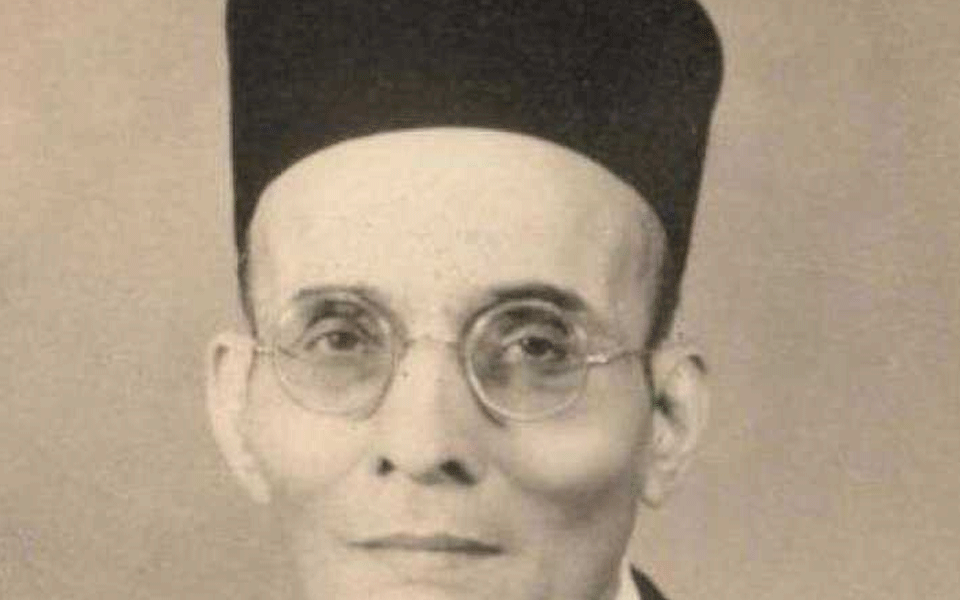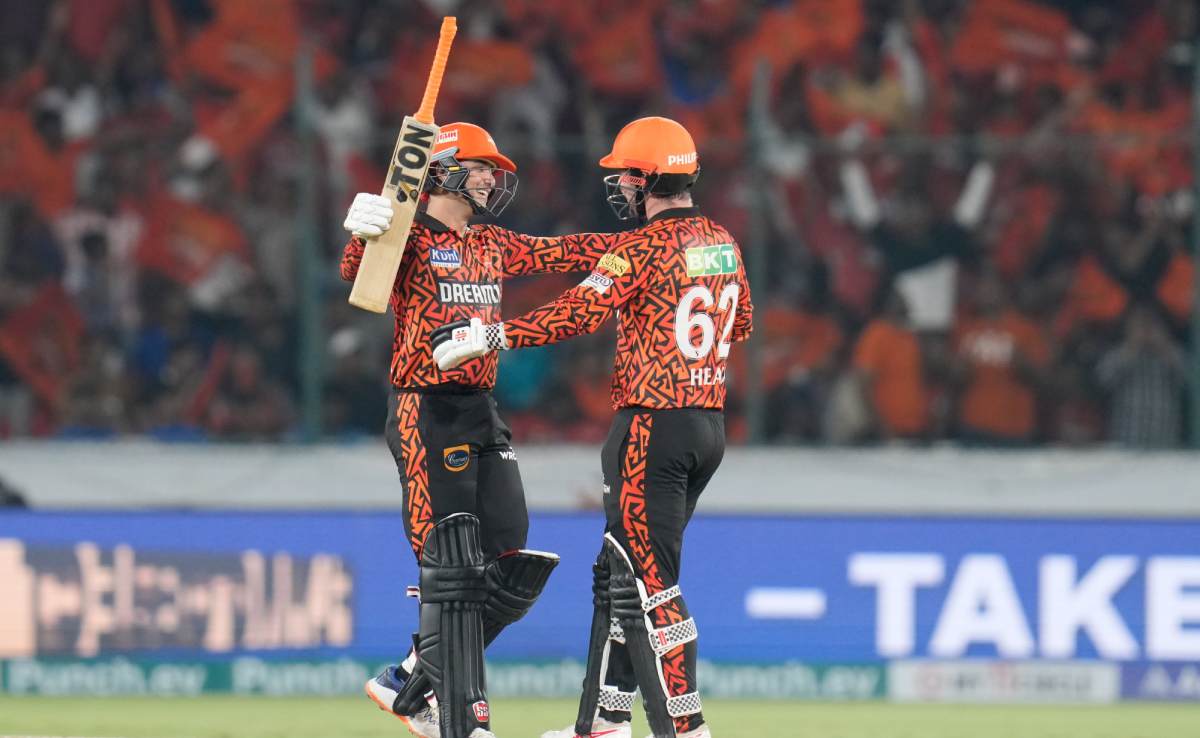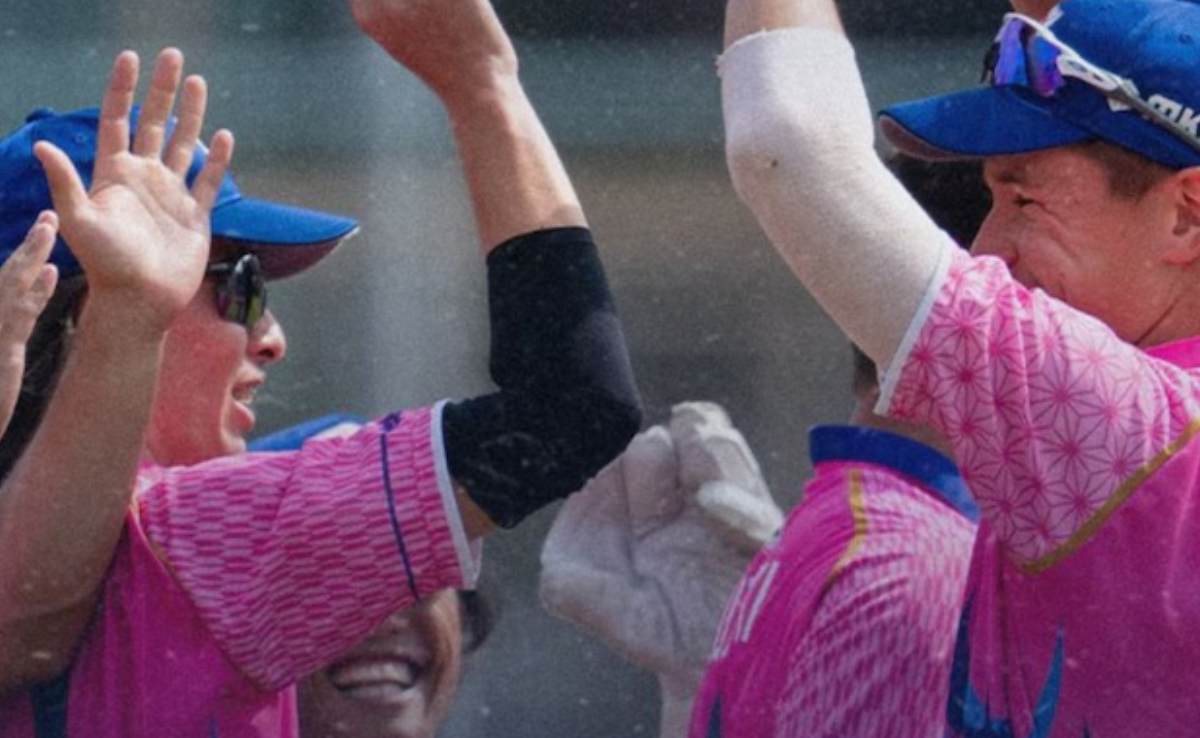Lucknow: A portrait of Hindutva ideologue Savarkar in the picture gallery of the Uttar Pradesh Legislative Council has sparked a row, with Congress MLC Deepak Singh raising an objection and writing a letter to the Chairman seeking its removal.
The portrait was inaugurated by Chief Minister Adityanath on Tuesday.
The installation of the picture of Savarkarji along with that of great freedom fighters who withstood atrocities of the British and yet did not bow before them is an insult to all those who continued to bear all kind of tortures and kept fighting for independence, Singh said in the letter to Chairman Ramesh Yadav on Tuesday.
He also said that the picture of Savarkar should be removed and be placed in the BJP parliamentary office .
Singh said the Chairman has directed the principal secretary of the Council to look into the matter and take necessary action.
Samajwadi Party president Akhilesh Yadav, when asked to comment on the issue, said there should be a debate among the youth about what contribution has been made by different people to the country and all those who have contributed to the freedom struggle should be honoured.
But there are others on whom there are different kinds of allegations, documents and stories which raise a question mark, the former Uttar Pradesh chief minister added without elaborating.
While inaugurating the portrait, the chief minister had termed Savarkar as a great freedom fighter and philosopher whose personality is a source of inspiration for all Indians.
While the BJP counts on Savarkar's contribution to India's freedom movement and calls him a "great patriot", the Congress and other opposition parties have long shunned him for his alleged link to Mahatma Gandhi's assassin.
Let the Truth be known. If you read VB and like VB, please be a VB Supporter and Help us deliver the Truth to one and all.
New Delhi, May 8: Admitting that T20 leagues have devoured a lot of Test cricket’s space, West Indian legend Brian Lara has appealed to the ICC to step in to give a structure to the unrelenting invasion of the franchise-based tournaments.
In the latest instance that fuelled questions over the relevance of Tests, South Africa recently sent an under-strength squad to New Zealand as their first-choice players were involved in the SA20 at home.
“I think ICC (should) put their head together and find a way where franchise cricket takes over, but in a much more structured way and not in terms of the free fall that is going on at the moment,” Lara said in an interaction with PTI editors at its headquarters which was facilitated by Star Sports where he is a commentator and expert for the ongoing IPL.
“I hope the astute thinkers could find a way to make sure that it (Test) remains relevant. I like the Test Championship and I think it is important to make sure that the game remains relevant.”
So, is cricket now taking the football route where leagues take precedence over international assignments?
While Lara agreed in principle to the point, he found differences too in the two models.
“Well, yes (cricket following the football way). Let's just look at football. For instance, other than the big cups – European cups, World Cup, South American cups – they may have a few friendlies. So, Barcelona, Manchester United, Manchester City, they have their footballers generally for 11 months of the year.
“That seems to be working for football. It's taken off the burden as well for each country to be finding ways of making money by having football matches,” Lara began.
But Lara said the wealth being accumulated among three big nations – India, Australia and England – presented a rather different scenario in cricket.
“The West Indies now is in a situation where our gate receipts can't make us survive. So, we are very thankful whenever India tours the West Indies. It's a lot of TV rights money passing around which is great.
“So, it's hard to see outside of the big three – Australia, England and India – how countries are going to survive when economically it's tough for them.”
From a cricketing perspective, the elegant left-hander said teams often not having their best players available also make things tough for teams outside the big three.
Lara might have had someone like Trent Boult in mind as the pacer recently turned down New Zealand central contract to become a T20 freelancer.
“Secondly, they (teams) don't have their best players playing because their best players are making a living for their family elsewhere (leagues),” he added.
In March this year, BCCI had introduced a Test Cricket Incentive Scheme, an additional reward structure on top of the existing match fee, to ensure parity with match fees in other formats and leagues.
Lara welcomed the step but added that bringing spectators to the ground was equally paramount to sustain the game and the sponsors’ interest.
“Incentivizing, or what BCCI is doing because they have the money, is one aspect of it. Of course, remuneration to the players is great to keep them interested in the game.
“But when you're walking to a Test match and there's nobody at that Test match, then it's not encouraging. Try to get them (crowd) back into the ground,” said Lara.
The Trinidadian said having a stadium packed to the rafters is important from the sponsors’ view as well.
“I'm almost sure you’ve experienced it in India, where a sponsor preferred to spend his money on three hours of cricket instead of five days of cricket. ‘Hey, you have five days to promote your product.’
“The corporate person will say: ‘But there's nobody to promote it to. Give me three hours. I will pay even more money.’ So, I think getting the crowd back is also something that should be discussed,” he explained.
While Lara has little doubt that the T20 version caters to spectators’ demands, he said the modern-day viewers should be educated about the unique ebbs and flow of five-day cricket.
“Well, I hope it hasn't (Test not losing relevance). The shorter version of the game is taken over and it is entertainment and that's what people look for. We haven't educated the present-day public about the importance of batting a session and not losing a wicket."





